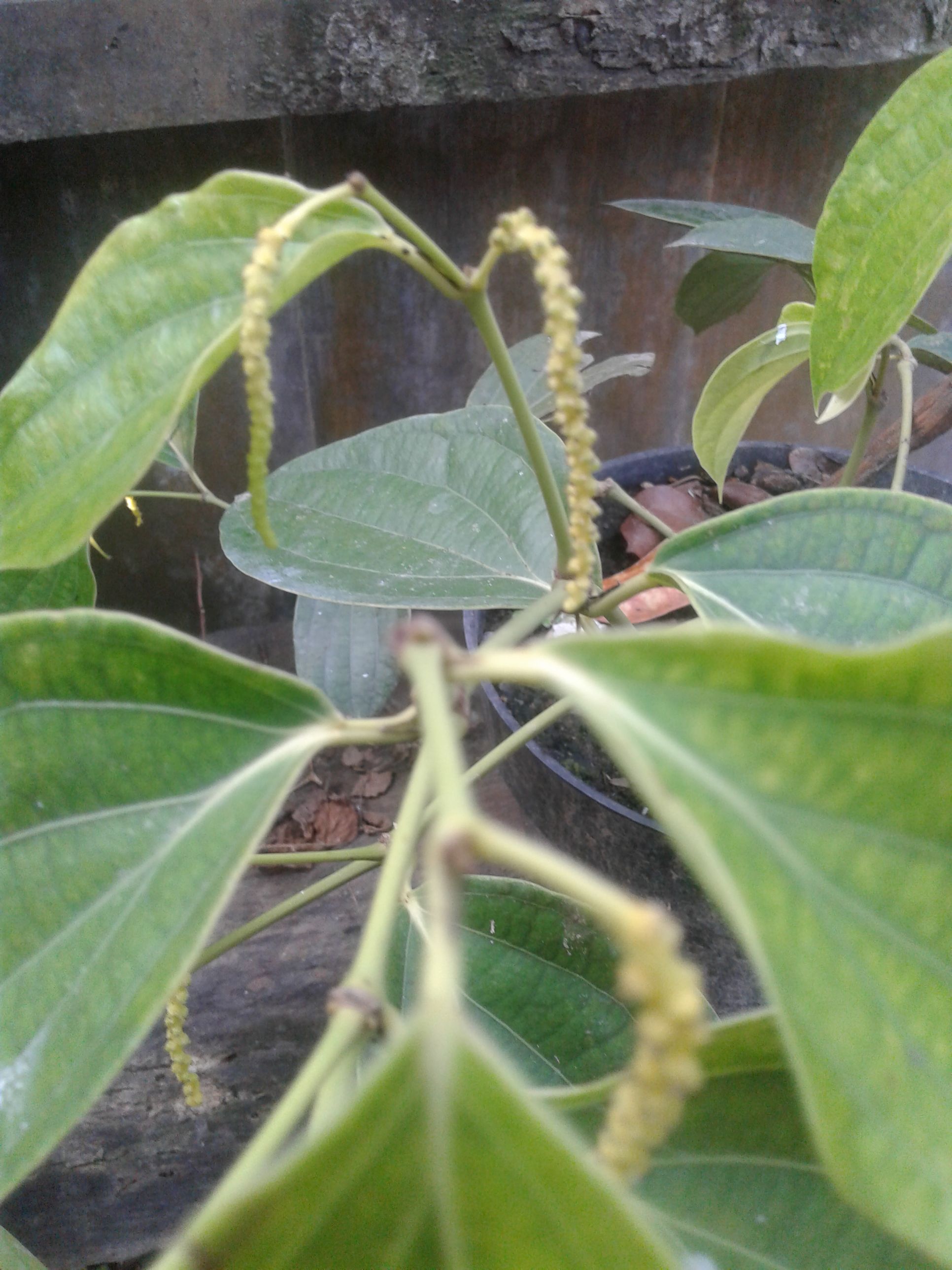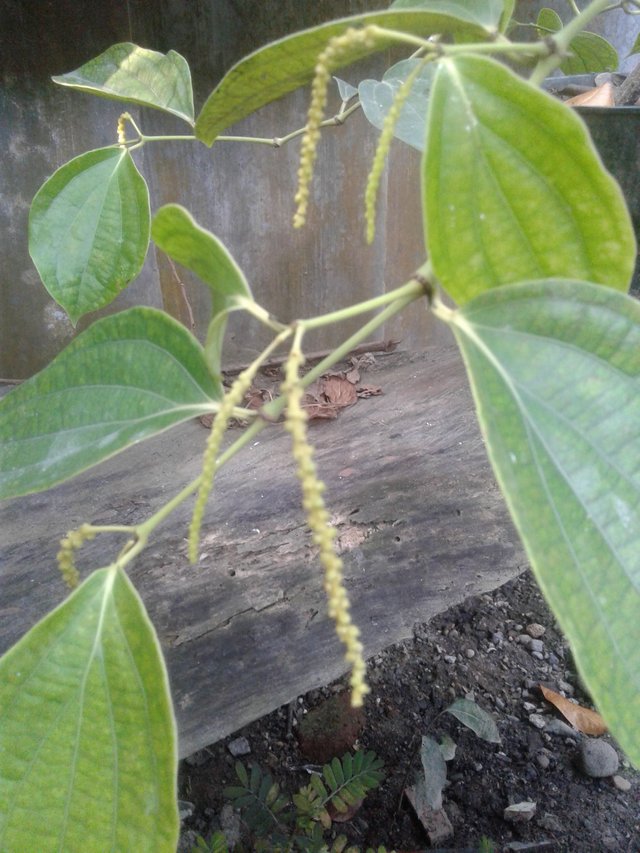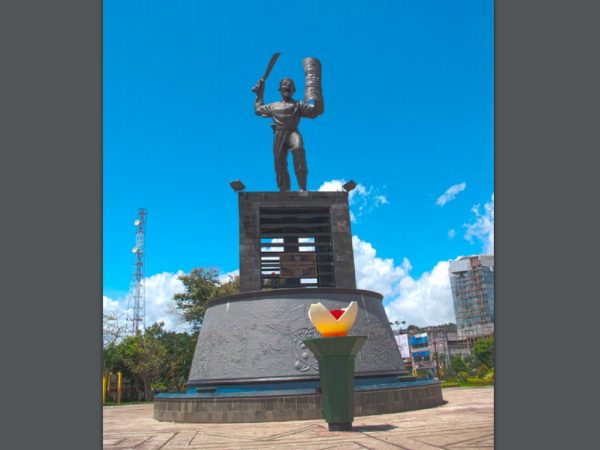Tracing the history of clove expedation colonialsm
 dropcap] C [/ dropcap] crank (Syzygium aromaticum, syn. Eugenia aromaticum), in English called cloves, is a scented dried flower stalk of the Myrtaceae family tree. Cloves are native to Indonesia are widely used as preservatives, spices, and one of the main ingredients of Indonesian clove cigarettes.Cloves are also in the historical record has "mengungang" European nations to colonize this country. Pick it up, and trade it in Europe for the prosperity of kings and queens. Here are some fragments of clove history in the colonial period adapted from a book entitled "Clove Expedition".The great cities of Tire in Greece and Venice in Italy became the main port of the Maluku spice into European life and civilization. Not only makes economics and commerce and science and technology flourish, clove and nutmeg are even the most decisive factor in the emergence of one of the most dreadful episodes in the history of world politics, the colonial era of Europe, especially over the top South-East Asian countries and Southeast, including Indonesia.Portuguese, Spanish, English, and Dutch hold great expeditions to find cloves and nutmegs directly in their homeland. When their fleets finally reached the waters of the Maluku Islands, in the 16th century, war was inevitable. the last winner is the Netherlands. Through the East India Company (Vereenigde Oostindische Compagnie, VOC) established in the early 17th century (precisely 1609).The Netherlands controls the full trade of Maluku spices with an average production of 2,500 to 4,500 tons per year. Although the main role of the Maluku spice was then displaced in the 18th and 19th centuries by some other tropical exotic items, but history has noted that the two types of Maluku spices that started the exploration as well as colonization of the archipelago of the archipelago by the European nations, especially the DutchFort Duurstede, a historical building of colonial heritage until now we can still visit in on Saparua Island, 55 dropcap] C [/ dropcap] crank (Syzygium aromaticum, syn. Eugenia aromaticum) in English called cloves, is a scented dried flower stalk of the Myrtaceae family tree. Cloves are native to Indonesia are widely used as preservatives, spices, and one of the main ingredients of Indonesian clove cigarettes.Cloves are also in the historical record has "mengungang" European nations to colonize this country. Pick it up, and trade it in Europe for the prosperity of kings and queens. Here are some fragments of clove history in the colonial period adapted from a book entitled "Clove Expedition".The great cities of Tire in Greece and Venice in Italy became the main port of the Maluku spice into European life and civilization. Not only makes economics and commerce and science and technology flourish, clove and nutmeg are even the most decisive factors in the emergence of one of the most dreadful episodes in the history of world politics, the colonial era of Europe, especially over the top South-East Asian countries and Southeast, including Indonesia.Portuguese, Spanish, English, and Dutch hold great expeditions to find cloves and nutmegs directly in their homeland. When their fleets finally reached the waters of the Maluku Islands, in the 16th century, war was inevitable. the last winner is the Netherlands. Through the East India Company (Vereenigde Oostindische Compagnie, VOC) established in the early 17th century (precisely 1609).The Netherlands controls the full trade of Maluku spices with an average production of 2,500 to 4,500 tons per year. Although the main role of the Maluku spice was then displaced in the 18th and 19th centuries by some other tropical exotic items, but history has noted that the two types of Maluku spices that started the exploration as well as colonization of the archipelago of the archipelago by the European nations, especially the DutchFort Duurstede, a historical building of colonial heritage until now we can still visit in on Saparua Island, 55 kilometers east of Ambon City. The fort that was originally built by the Portuguese which was later captured by the Dutch in 1676, was not only a building that reminds us of the seizure of the European nations over the land of Maluku, or the resistance of Capitan Patimura in his struggle to expel colonialism.But also invites us to remind that there are spices in the form of nutmeg and cloves that became important commodities at that time. It is shown by the existence of a building in the form of a warehouse in the northern part of the fort, which was formerly a place of storage of cloves and nutmeg, two produce that invites the arrival of European nations.On the other side, precisely in the village of Bukubualawa, Jailolo, West Halmahera - the village is named Bukubualawa because in its hills there is a clove tree that survived the mass extinction by the Dutch in the 16th century and 17 - also has its own story with the Dutch colonial .In the 1599 range, the price of cloves on the market was still 35 real per bahar (550 pounds), then rose to 50 real in 1610, and continued to soar to 70 real per clove pound. The price is equivalent to 7 grams of gold. The value of such a large commodity makes the Dutch become aggressive and protective of the region, and to the commodity.
dropcap] C [/ dropcap] crank (Syzygium aromaticum, syn. Eugenia aromaticum), in English called cloves, is a scented dried flower stalk of the Myrtaceae family tree. Cloves are native to Indonesia are widely used as preservatives, spices, and one of the main ingredients of Indonesian clove cigarettes.Cloves are also in the historical record has "mengungang" European nations to colonize this country. Pick it up, and trade it in Europe for the prosperity of kings and queens. Here are some fragments of clove history in the colonial period adapted from a book entitled "Clove Expedition".The great cities of Tire in Greece and Venice in Italy became the main port of the Maluku spice into European life and civilization. Not only makes economics and commerce and science and technology flourish, clove and nutmeg are even the most decisive factor in the emergence of one of the most dreadful episodes in the history of world politics, the colonial era of Europe, especially over the top South-East Asian countries and Southeast, including Indonesia.Portuguese, Spanish, English, and Dutch hold great expeditions to find cloves and nutmegs directly in their homeland. When their fleets finally reached the waters of the Maluku Islands, in the 16th century, war was inevitable. the last winner is the Netherlands. Through the East India Company (Vereenigde Oostindische Compagnie, VOC) established in the early 17th century (precisely 1609).The Netherlands controls the full trade of Maluku spices with an average production of 2,500 to 4,500 tons per year. Although the main role of the Maluku spice was then displaced in the 18th and 19th centuries by some other tropical exotic items, but history has noted that the two types of Maluku spices that started the exploration as well as colonization of the archipelago of the archipelago by the European nations, especially the DutchFort Duurstede, a historical building of colonial heritage until now we can still visit in on Saparua Island, 55 dropcap] C [/ dropcap] crank (Syzygium aromaticum, syn. Eugenia aromaticum) in English called cloves, is a scented dried flower stalk of the Myrtaceae family tree. Cloves are native to Indonesia are widely used as preservatives, spices, and one of the main ingredients of Indonesian clove cigarettes.Cloves are also in the historical record has "mengungang" European nations to colonize this country. Pick it up, and trade it in Europe for the prosperity of kings and queens. Here are some fragments of clove history in the colonial period adapted from a book entitled "Clove Expedition".The great cities of Tire in Greece and Venice in Italy became the main port of the Maluku spice into European life and civilization. Not only makes economics and commerce and science and technology flourish, clove and nutmeg are even the most decisive factors in the emergence of one of the most dreadful episodes in the history of world politics, the colonial era of Europe, especially over the top South-East Asian countries and Southeast, including Indonesia.Portuguese, Spanish, English, and Dutch hold great expeditions to find cloves and nutmegs directly in their homeland. When their fleets finally reached the waters of the Maluku Islands, in the 16th century, war was inevitable. the last winner is the Netherlands. Through the East India Company (Vereenigde Oostindische Compagnie, VOC) established in the early 17th century (precisely 1609).The Netherlands controls the full trade of Maluku spices with an average production of 2,500 to 4,500 tons per year. Although the main role of the Maluku spice was then displaced in the 18th and 19th centuries by some other tropical exotic items, but history has noted that the two types of Maluku spices that started the exploration as well as colonization of the archipelago of the archipelago by the European nations, especially the DutchFort Duurstede, a historical building of colonial heritage until now we can still visit in on Saparua Island, 55 kilometers east of Ambon City. The fort that was originally built by the Portuguese which was later captured by the Dutch in 1676, was not only a building that reminds us of the seizure of the European nations over the land of Maluku, or the resistance of Capitan Patimura in his struggle to expel colonialism.But also invites us to remind that there are spices in the form of nutmeg and cloves that became important commodities at that time. It is shown by the existence of a building in the form of a warehouse in the northern part of the fort, which was formerly a place of storage of cloves and nutmeg, two produce that invites the arrival of European nations.On the other side, precisely in the village of Bukubualawa, Jailolo, West Halmahera - the village is named Bukubualawa because in its hills there is a clove tree that survived the mass extinction by the Dutch in the 16th century and 17 - also has its own story with the Dutch colonial .In the 1599 range, the price of cloves on the market was still 35 real per bahar (550 pounds), then rose to 50 real in 1610, and continued to soar to 70 real per clove pound. The price is equivalent to 7 grams of gold. The value of such a large commodity makes the Dutch become aggressive and protective of the region, and to the commodity. The clove monopoly strategy became the Dutch choice at the time, not only in terms of trade, but thorough from upstream to downstream. Clove gardens occupied by the Dutch, not even a little clove gardens burned.The concentration of clove production is also centralized on the islands of Ambon and Lease. Sea fleets are strengthened, routine patrols are performed by kora-kora ships, they patrol the islands to preserve this major commodity from "smuggling". Similarly, the naval center of commerce at that time, Makassar, which did not escape in the mastery. The Dutch attacked Makassar, seized control of the area, and forced local panguasa to surrender all cloves to the VOC. Rewards, the Netherlands provides military protection from the attacks of others.The strategy went on until the eighteenth century, until finally a Frenchman Pierre Poivre and his scribe M. Provost landed on Gebe Island in 1770. Captivating the local tribal chief, and ordered his citizens to bring clove and nutmeg seeds from Patani, Halmahera, smuggled, then planted and breed well in the French colonies in Zanzibar, Madagascar, and Martinique.The island of Makian is recorded in the history of hunting spices. With a land area of 113.12 square kilometers, the island produces the best quality cloves with Ternate, Tidore, and Moti. Other islands have clove trees as well, but from these four islands cloves were first produced
The clove monopoly strategy became the Dutch choice at the time, not only in terms of trade, but thorough from upstream to downstream. Clove gardens occupied by the Dutch, not even a little clove gardens burned.The concentration of clove production is also centralized on the islands of Ambon and Lease. Sea fleets are strengthened, routine patrols are performed by kora-kora ships, they patrol the islands to preserve this major commodity from "smuggling". Similarly, the naval center of commerce at that time, Makassar, which did not escape in the mastery. The Dutch attacked Makassar, seized control of the area, and forced local panguasa to surrender all cloves to the VOC. Rewards, the Netherlands provides military protection from the attacks of others.The strategy went on until the eighteenth century, until finally a Frenchman Pierre Poivre and his scribe M. Provost landed on Gebe Island in 1770. Captivating the local tribal chief, and ordered his citizens to bring clove and nutmeg seeds from Patani, Halmahera, smuggled, then planted and breed well in the French colonies in Zanzibar, Madagascar, and Martinique.The island of Makian is recorded in the history of hunting spices. With a land area of 113.12 square kilometers, the island produces the best quality cloves with Ternate, Tidore, and Moti. Other islands have clove trees as well, but from these four islands cloves were first produced
Nice pic friend